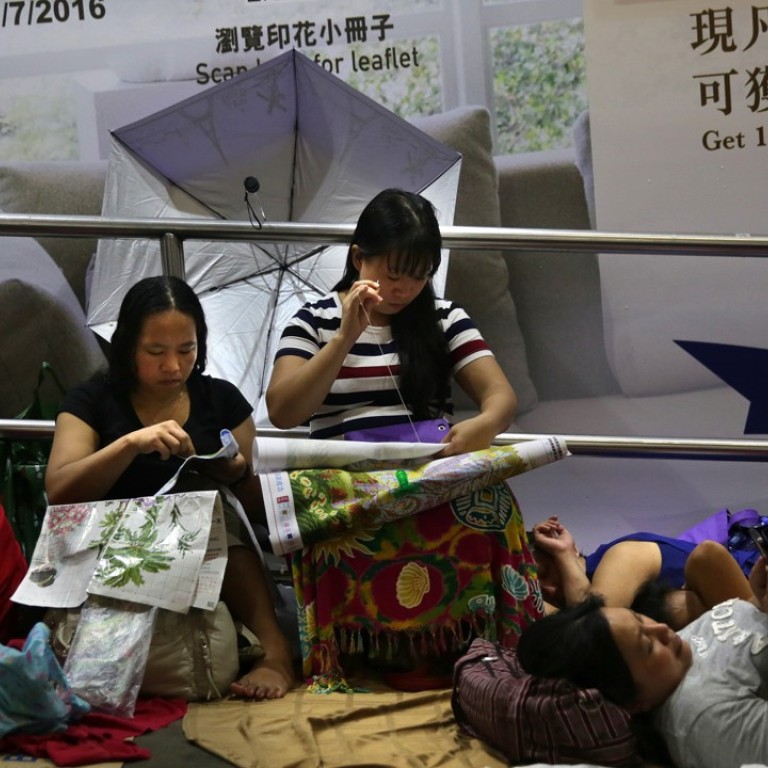
Strengthen protection for domestic helpers
A domestic helper has sought a review of the rule that requires maids to live with their employers. However allowing them to live out would also raise a number of difficult issues
A foreign domestic helper’s life in Hong Kong is defined by the denial of rights and freedoms enjoyed by other residents and expatriates, such as permanent abode after seven years of residence and the freedom to live where they choose. The top court upheld the denial of permanency four years ago in a judicial review sought by a maid who had lived here more than 20 years. Now another helper has lodged a judicial review in the High Court against government policy requiring maids to live with their employers.
Ironically, the top court ruled that helpers are not entitled to permanent residence because the live-in rule meant they did not meet the requirement of being “ordinarily” resident in Hong Kong. So far as the law is concerned in the present case, that is a matter for the court. But if it overturned the live-in requirement that could have implications for policy.
A helper who blames acute stress on her working conditions has asked the court to declare the live-in rule discriminatory under immigration and employment law and the Bill of Rights. The argument against the live-in policy is that it leaves helpers susceptible to abuse and invasion of privacy. It has been loudest after cases of mistreatment. The live-out alternative, however, raises a number of issues, apart from simply the matter of large groups of maids having to share flats to save costs. How else could they afford it? To protect the interests of both helper and employer, living out would need more regulation – especially the conditions of service.
Some could be regulated, such as a living-out allowance, and some could be settled by agreement, such as working hours. But some could be prone to interpretation and misunderstanding, such as whether the helper would be on call outside normal working hours and whether the employer would have any responsibility for her after work. Would some helpers find themselves in even worse living conditions if employers encouraged them to move out from cramped homes? So for helpers it may be a case of be careful what you wish for. Stronger protection against exploitation by employment agencies and employers is just as important as the live-in rule.

